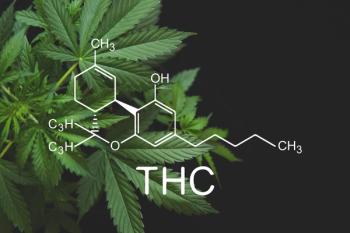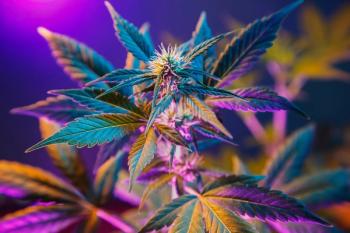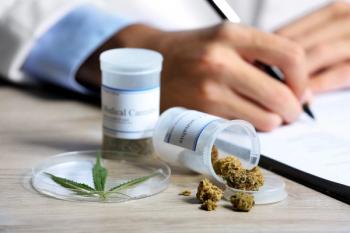
- December 2021
- Volume 2
- Issue 4
PTSD and Cannabis: Four Veterans Weigh In Veteran’s Advocacy Organizations are Blazing the Trail to Overcoming Treatment Denials, Fear of Losing Benefits, and Stalled Legislative Action
Veteran’s advocacy organizations are blazing the trail to overcoming treatment denials, fear of losing benefits, and stalled legislative action. Here Eryck Stamper, Jose Belen, Michael Krawitz, and Ron Millward share their stories.
It’s become increasingly clear that people suffering from post traumatic stress disorder (PTSD) can be significantly helped dealing with the effects they experience through therapies that include treatment with
medical cannabis.
Doctors and mental health experts agree that this anxiety disorder is complicated. The brain processes that govern the development and persistence of PTSD have yet to be identified fully, but PTSD includes sleep disturbances, memory and cognitive impairments, altered pain sensitivity, depression, emotional numbing, and suicidality (1).
And though PTSD can affect anyone who has experienced a lingering traumatic event—such as a car accident (2)—the biggest single population of people afflicted by PTSD are veterans returning from deployment who were involved directly in combat or were otherwise traumatized by their war-fighter experience. For example, it is estimated that about 30% of the Vietnam War veterans have had PTSD in their lifetime (3).
These veterans are generally so amped up from the hypervigilance required to maintain their own safety and the safety of their comrades while deployed that they can’t just turn that hypervigilance off when they return to civilian life. Some speak about walking around a restaurant before sitting down to eat, checking out the perimeter of their space like they would in a combat situation, looking for vulnerabilities that would compromise their safety. Others talk about sitting in a crowded setting in a room and facing the door to monitor what may approach them, and analyzing all activity around them to categorically determine whether that activity is coming from a friend or foe.
That ramped-up mentality is deeply rooted in the minds of some veterans, as they can relive certain tragic moments of deep fear and regret for the rest of their lives.
Doctors at the Veterans Health Administration have typically followed a pharmaceutical regimen for treating PTSD patients that includes Zoloft, Paxil, and Prozac, among other antidepressants and antipsychotics (4). But that treatment regimen has come under more and more scrutiny as veterans discover that those doctors, using those drugs, are really just numbing them out and masking their pain.
The PTSD veteran can end up becoming addicted to opioids over time, and has no life beyond sitting in the dark at home trying to come to terms with what has happened to them. And all too often, they end up coming to the conclusion that suicide is the only real solution out of their PTSD nightmare.
A New Way Out with Cannabis
Over the last decade or so, these returning veterans have found that cannabis can help them get back the lives that pharmaceuticals have taken away from them. And fellow veterans have formed dozens of organizations that help veterans discover the true healing that cannabis offers, albeit with a myriad of problems associated with federal prohibition that continues to hound even the best efforts of veteran cannabis advocacy organizations. Here are the stories of four such veterans.
Eryck Stamper and Veterans Initiative 22
One cannabis advocacy organization is Veterans Initiative 22 (5) founded by Navy veteran Eryck Stamper. The organization is named after the statistic that 22 veterans commit suicide every day (though that figure varies from year to year [6]). It was founded with the goal of preventing the high rate of suicides facing the veteran population.
“Veterans Initiative 22 is kind of a two-fold organization,” Stamper said. “We’re hiring business practice assistance for veterans, family, and first responders in the cannabis alternative and holistic healthcare space here and outside Maryland. The other side of the coin is that we’re working with a lot of the medical cannabis industry in the state with a pretty robust medical program.”
“We talk about cannabis as a medicine, what it can and can’t do for us. We also advocate at the federal and state levels with other great organizations,” he said. Maryland cultivators and processors, as well as 68 dispensaries, are hiring veterans. "We are also offering free medical cannabis evaluations for veterans in Maryland and Virginia," he added.
Stamper spent 23 years in the Navy, and comes from a long line of relatives serving their country. “My mother was in the Army. My father was a Vietnam veteran. My uncle was in the Navy. My grandfather was in the Navy,” Stamper said. “So it was always known that I was going to go in to the military even from a young age. I realized that I could take care of my college, travel, and see the world. So those are things that really intrigued me, the family heritage and just the desire to get out of the city and do new things.”
One of the issues facing veterans wanting to use medical cannabis is about the prohibition of firearms. “We see a lot of veterans who won’t become patients because they’re afraid to lose their firearms, because once you become a cannabis patient, you lose your Second Amendment right (7). Subsequently, we’re fighting at the federal and state level to get our gun rights back.”
He said that there are a lot of great advocacy groups for medical cannabis in the US. “I think we’re in a really close knit circle,” Stamper said. “We all develop a camaraderie. We’re watching each other and we’re giving each other advice. In fact, I helped two organizations open up their own nonprofit through the work that we were doing trying to get our doors open.”
He said his goal over the next five years is to go national and start expanding into other states. “We need to find more alternative ways to fund medical cannabis,” Stamper said.
Jose Belen and Mission Zero Actual
Jose Belen, co-founder of Mission Zero Actual, and the founder of VetBasel, both organizations dedicated to combating the PTSD and suicide epidemic plaguing US veterans (8), said that his mission is to “do whatever we can to not only help veterans but find reasons for them to live again, and lift up their families in the process.”
Belen deployed to Iraq in 2003 during the initial Operation Iraqi Freedom invasion and spent 14 consecutive months in combat. When he came home, he began experiencing the effects of PTSD as he built a successful career. “I came home as a complete and total machine of war,” Belen said. “That’s what I signed up for. That’s what the country asked me to do. I watched men and women with dignity die on that battlefield. I was witness to so much. I said, ‘You know what, man, I survived this war. I will do good in this life.’”
He agrees with Stamper that organizations like his and others should be looking at how they can work together. “There’s a word within the word ‘community’ and that’s ‘unity.’ We’re all within a framework of ‘OK, veterans are going through this after service. How can we jointly accomplish the mission to create new opportunities for employment, or philanthropy, or whatever, and support one another?’”
He said that organizations like his want to help eliminate the mindset that “taking our lives is the only solution, or that meds are the only solution.
“There’s hope out there. And that hope is within the veteran community, and within the Gold Star Family (9) community. We found each other. So our mission is really just about taking what we know to be a very horrible reality, and giving voices to the voiceless.”
Belen believes that cannabis is another “tool in your tool belt,” and that veterans across the board should have compassionate access to that medicine right now. “It’s an absolute shame that the plant, and that bureaucracy and all the BS that’s kept it locked up, continues at this time. So that’s why I have no issue holding the powers that be accountable. They should have delivery accessible in the form of a natural plant that’s done nothing but serve this world good for hundreds of 1000s of years.
“I’m not a politician. I’m a warrior. I’ve talked to lawmakers who literally looked me in the face, on both sides of the aisle, and said they would love to vote to get access, but that they have a political career to consider. So unfortunately, while they get it, they say that they can’t support you publicly. And I hate to say it, but talking to politicians right now is like beating a dead horse.
“This has everything to do with humanitarianism. It has everything to do with every politician. At the end of the day, that politician has a beating heart. You can feel it. It beats every second. I need that politician to touch that heart before they touch their political affiliation and make the decision based on that. Because the second you pivot and run behind your party, you now have blood on your hands, because the veteran suicide numbers are not moving.”
Veterans like him battling PTSD will be participating in “the hardest battle of your life,” Belen said. “But there is a way to get up every day, and be ultimately what you’re always meant to be. It’s never too late to be what you might have become.”
Michael Krawitz and Veterans for Medical Cannabis Access
A friend of Air Force veteran Michael Krawitz observed him at work as executive director of Veterans for Medical Cannabis Access (VMCA) (10) and noted that activism is doing more than just helping others for a lot of these advocates, Krawitz in particular. “At one point, he just looked at me and said, ‘You know, I just realized that you’re getting a therapeutic benefit from this activism. That’s why you’re doing this.’ And that’s exactly it. We do get a therapeutic benefit from trying to do the right thing, from trying to help others get this (cannabis) medicine in the hands of those that can help save lives. It gives us a mission. And it gives us something to get out of bed in the morning for,” he said.
Krawitz is a disabled US Air Force veteran who served from 1981 to 1986. He was injured in an accident in Guam that was not combat related. He had 13 surgeries to put him back together, including some done in the Air Force and some done by the Department of Veterans Affairs (VA). Since then, Krawitz has been busy pursing his advocacy work.
He worked on a cannabis decriminalization bill in Virginia (11) that passed into law in July 2020. Then he helped create a Virginia legalization bill (12) that passed into law in July 2021.
He was also appointed as one of 21 council members on the Virginia Cannabis Public Health Advisory Council (13), which has authority over public health decisions regarding cannabis.
And he just returned from five years abroad, where he worked to change World Health Organization’s recommendations (14) to reclassify cannabis that would help advance research and medical use. “It’s really been a pretty wild ride,” he said.
He is now monitoring developments with the bi-partisan Veterans Medical Marijuana Safe Harbor Act (15) in Congress. It’s something else that is working for veterans to help them find treatments other than opioids, because one of the pieces of information inside that bill is that opioids account for approximately 70% of all drug overdoses in the US, and veterans are twice as likely to die from opioid related overdoses than non-veterans.
The VA is still under restrictions from the US Drug Enforcement Administration (DEA) about marijuana because it is listed as a Schedule I substance, meaning that the VA is not able to recommend or fill out the forms for veterans to use medical marijuana. “We thought that if there are some doctors that want to come and fight this, then we will help them. But in the meantime since the federal government was passing the buck to the states we would to go work in the states on state laws. So that’s what we did. We did a pretty careful assessment of the state laws and compared it to what we know about cannabis, and determined that the thing that we could work on to have the greatest impact was PTSD,” said Krawitz.
The first state to pass PTSD as a qualifying condition for medical marijuana was New Mexico. This effort was led by VMCA mentor Brian Krumm. “So based on that work, and based on the science, we took this on as a national effort,” Krawitz said. “Our strategy was to treat it as a veterans issue, even though the vast majority of patients out there are not veterans. I think we’ve succeeded in knocking down some of the stigma of seeking treatment for PTSD, of making it an acceptable thing that you can talk about, and showing clearly, in many states, that some of the symptoms of PTSD can be effectively treated with cannabis.
“We’ve got over 30 states that have PTSD as a qualifying condition with tens of thousands of patients using that, and their doctors approving it and overseeing it. And that is sort of like a standing wave starting from the West Coast building towards the East Coast, directed at the VA,” he said.
Ron Millward and Balanced Veterans Network
Balanced Veterans Network (BVN [16]) is a 501(c)(3) organization on a mission to create a safe space for the education, advocacy, and empowerment of alternative therapies for veterans and their families. BVN partners with professionals, businesses, and other organizations to support veterans and their families to live a better, more balanced life.
Ron Millward is the founder and president of BVN. Millward enlisted in the United States Air Force at 17 years old, served for seven years as a combat vehicle operator and an aerospace flight medic where he lost some friends to suicide, then began to experience PTSD at home as he sought to change the direction of his life by serving as a pastor for
several churches.
But he continued to struggle with mental health issues related to his combat service. “I was really stuck on the pharmaceutical trail, struggling with suicidal ideation, just not feeling myself but just could not figure it out,” Millward said.
A friend introduced him to cannabis, and Millward found that he was able to get some relief and start to transition off pills. “But what I realized was there really wasn’t much of a community for help with these opioid and mental health issues,” he said. “There were a bunch of different organizations doing certain things or fighting for legislation, but there was not much community around the cannabis space. So I was looking for individuals who were trying to understand how to transition off of medicines, which was extremely difficult.”
There are some other larger cannabis advocacy organizations, but BVN is a smaller grassroots organization based in Philadelphia, with veterans in the group representing every state and multiple countries. “We’ve seen folks that have never even touched THC in their lives,” he said. “They’ve gotten off pharmaceuticals, and took just CBD, which I think is incredible as well. So there’s such a spectrum of people. But for me, I really felt like in the space there was a need for community and then introduction to other alternative therapies. I quickly realized that cannabis is not the end all be all. It’s not the tool for everything, but doing other things such as learning mindfulness and breathing techniques and meditation and incorporating yoga into my life was very helpful. So we wanted to create a space for veterans to get that introductory level to those things.”
BVN operates in four different areas: Operation 1620 (17), a movement area, a mental wellness area, and a project triangle area. “Each of those areas touches on mind-body-spirit in different ways,” Millward said.
As advocacy organizations such as his continue their work, he realizes that every veteran still has to face the challenges of working with the VA. “People are still afraid of it, because, honestly, our benefits are not protected,” he said. “They could change something if they wanted to. We could be labeled with cannabis use disorder and whatever they wanted to do. So there is a scare there.
“A lot of us are just confused. We’ve seen people’s lives changed. I see it every day. And it’s difficult to at least not even allow the research or for us to be able to have marijuana recommended. Why wouldn’t they be able to do that?”
References
https://www.ncbi.nlm.nih.gov/pmc/articles/PMC6397040/ https://www.ncbi.nlm.nih.gov/pmc/articles/PMC2396820/ https://www.ptsd.va.gov/understand/common/common_veterans.asp https://www.ncbi.nlm.nih.gov/pmc/articles/PMC3278188/ https://www.veteransinitiative22.com https://www.mentalhealth.va.gov/docs/data-sheets/2021/2021-National-Veteran-Suicide-Prevention-Annual-Report-FINAL-9-8-21.pdf https://www.dav.org/veterans/resources/medical-cannabis/ https://mzactual.org/about-us https://www.army.mil/goldstar/ http://www.veteransformedicalmarijuana.org/content/about-vmma https://lis.virginia.gov/cgi-bin/legp604.exe?201+sum+SB2 https://lis.virginia.gov/cgi-bin/legp604.exe?212+sum+SB1406 https://law.lis.virginia.gov/vacode/title4.1/chapter6/section4.1-603/ https://www.nytimes.com/2020/12/02/world/europe/cannabis-united-nations-drug-policy.html https://www.congress.gov/bill/117th-congress/house-bill/2588?s=1&r=6 https://www.balancedveterans.com/pages/bvn-about https://www.balancedveterans.com/pages/bvn-operation1620
Articles in this issue
about 4 years ago
December 2021 Digital Editionabout 4 years ago
What Can We Do for Our Veterans?about 4 years ago
PTSD by the Numbersabout 4 years ago
Overview of the Research on Cannabis for PTSDabout 4 years ago
A Doctor’s Fight for Cannabis Reform and Regulationabout 4 years ago
Cannabis, Women Veterans, and VSOs: An Advocate’s Journeyabout 4 years ago
Americans for Safe Access: Two Veterans Pushing for More Scienceabout 4 years ago
Veterans Farming at CARE WaialuaNewsletter
Unlock the latest breakthroughs in cannabis science—subscribe now to get expert insights, research, and industry updates delivered to your inbox.




